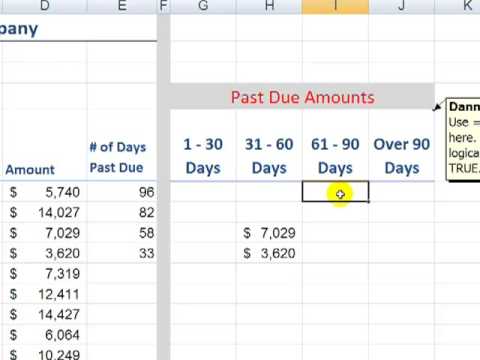Who Needs an ITIN or Individual Tax Identification Number?

Form W-7(SP), Solicitud de Número de Identificación Personal del Contribuyente del Servicio de Impuestos Internos is available for use by Spanish speakers. If none of the in-person options work for you, you can still submit your application by mail. We strongly suggest that you get certified copies of all your documents instead of sending originals. We also suggest you send the application and documents by certified mail so you’ll have evidence of when you filed the application and where you sent it. The above article is intended to provide generalized financial information designed to educate a broad segment of the public; it does not give personalized tax, investment, legal, or other business and professional advice.
21.263, IRS Individual Taxpayer Identification Number (ITIN) Real-Time System (RTS)
The IRS issues ITINs to individuals who are required to have a U.S. taxpayer identification number but who do not have, and are not eligible to obtain, a Social Security number (SSN) from the Social Security Administration (SSA). ITIN holders must verify their identity through the video chat process and will need a valid email address, proof of ITIN, one primary document and one secondary document. In general, only people who are authorized to work in the United States are eligible to have a Social Security number. This can include both U.S. citizens and non-citizens such as U.S. nationals and permanent residents. These people use their Social Security numbers to identify themselves when filing their taxes. Taxpayers with an ITIN can complete the registration process to access is retained earnings a debit or credit their IRS online account, which provides balance due, payment history, payment plans, tax records, and more.
- If you do not have a PTIN, you must get one by using the new IRS sign-up system.
- If you must send original documents, you can send the IRS a prepaid express envelope with your application to have them returned faster.
- They are issued regardless of immigration status, because both resident and nonresident aliens may have a U.S. filing or reporting requirement under the Internal Revenue Code.
- But non-citizens without work authorization sometimes have to file U.S. tax returns, too—if they have income from U.S. sources, for example, or if they are entitled to a refund of withheld money under a tax treaty.
- If you’re required to file a tax return and aren’t eligible for a Social Security number, you need to apply for an ITIN (See the What should I do? section, above).
Government information
A tax return accompanied by one or more W-7 forms cannot be submitted electronically. You can submit it in person at any IRS Taxpayer Assistance Center that performs in-person document reviews; most major cities have such assistance centers, and there is at least one center in every state. But non-citizens without work authorization sometimes have to file U.S. tax returns, too—if they have income from U.S. sources, for example, or if they are entitled to a refund of withheld money under a tax treaty. U.S. citizen taxpayers typically use Social Security numbers to identify themselves and their working capital turnover ratio family members to the Internal Revenue Service.
If you are not a U.S. citizen and do not have a Social Security number, learn how to get and use an Individual Taxpayer Identification Number (ITIN) to file a federal tax return. They don’t entitle the taxpayer to Social Security benefits, stimulus payments, or other benefits. Low Income Taxpayer Clinics (LITCs) are independent from the IRS and TAS. LITCs represent individuals whose income is below a certain level and who need to resolve tax problems with the IRS. LITCs can represent taxpayers in audits, appeals, and tax collection disputes before the IRS and in court.
Foreign Tax Credit: Choosing to take credit or deduction
As an independent organization within the IRS, the Taxpayer Advocate Service helps taxpayers resolve problems and recommends changes that will prevent problems. See how much you can save when a TurboTax expert does your taxes, start to finish. A Taxpayer Identification Number (TIN) is an identification number used by the Internal Revenue Service (IRS) in the administration of tax laws. It is issued either by the Social Security Administration (SSA) or by the IRS. A Social Security number (SSN) is issued by the SSA whereas all other TINs are issued by the IRS.
More In File

The taxpayer Bill of Rights is grouped into 10 easy to understand categories outlining the taxpayer rights and protections embedded in the tax code. Get unlimited advice, an expert final review and your maximum refund, guaranteed. For more information see Allowable Tax Benefits in the Instructions for Form W-7 PDF. For a summary of those rules, please see the new Form W-7 and its instructions. A taxpayer who was experiencing a family emergency and needed to travel out of the country with his… Acceptance Agents (AAs) and Certifying Acceptance Agents (CAAs) can help you complete applications.
If you qualify for an exception, then file Form W-7 with your proof of identity and foreign status documents and supporting documentation for the exception. Beginning January 1, 2011, if you are a paid tax preparer you must use a valid Preparer Tax Identification Number (PTIN) on returns you prepare. If you do not have a PTIN, you must get one by using the new IRS sign-up system.
The application — Form W-7, Application for IRS Individual Taxpayer Identification Number — asks details about why you need an ITIN and requires you to send in certain documents to prove your foreign status and understanding direct deposit process identity. An ITIN will expire at the end of the current year if it is not used on a federal tax return in the last 3 years. You can mail the W-7 and documentation to the address in the Form W-7 Instructions.